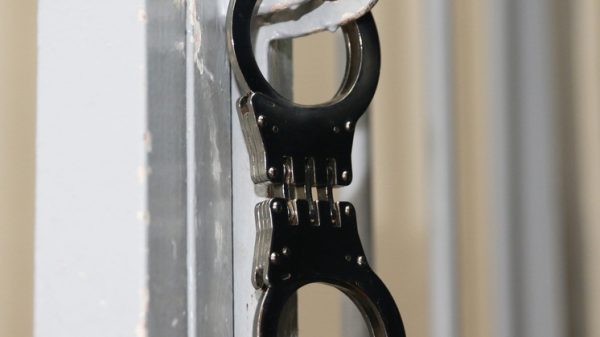 Melvin Bragg meets Paul McCartney at the very first South Bank Show in 1978
Melvin Bragg meets Paul McCartney at the very first South Bank Show in 1978
So farewell The South Bank Show. Although Melvin Bragg's art interview series seemed to end in 2010 when its original 32-year run ended on ITV, it was revived two years later by Sky Arts and continues to this day as Bragg interviewed an eclectic mix of the greats and the greats. of people. good (and sometimes not so good) in the field of art and culture.
Over the course of eight hundred plus episodes, Bragg proved to be an exemplary interviewer; less flattering than the late Michael Parkinson, but nowhere near as belligerent as his predecessor, Face to Face's John Freeman, meaning he has the rare gift of calming his subjects down, preventing them from relaxing into joke-telling mode . And there have been countless revelations about the programme, from the drunken antics of Francis Bacon and, more surprisingly, Laurence Olivier to Dennis Potter's latest interview: the latter is widely regarded as one of the greatest hours of television programming ever broadcast.< /p>
Inevitably, Bragg, now 83, will eventually have to step down as host and has become so synonymous with the show that it seems almost unbelievable he'll ever be replaced (although the undoubtedly ubiquitous Amol Rajan dusts off his Resume). as we say). However, as the final series of The South Shore Show starring David Hockney prepares to air, here are 10 encounters that have defined Britain's most beloved arts and culture show of the past 45 years.
1. Paul McCartney (1978)
The very first interview on The South Bank Show, when it aired on January 14, 1978, was with Paul McCartney; then, as now, he was one of the most famous musicians in the world and slowly moved from the glory of the Beatles to a solo career, now with his band Wings. The interview itself was interesting not because of what McCartney did and didn't say (like many of his peers, his apparent frankness hides great restraint), but because of the interviewer's statement of intent.

As Bragg later said, “I started with McCartney partly because of his great talent, partly to get my point across. I wanted The South Bank Show to reflect my life and the life of the team around me; expand conventional boundaries and challenge the conventional hierarchy of the arts; include pop music as well as classical music, television dramas, and theatrical dramas and high-definition performers in comedy. I thought the idea that popular art was by definition superficial and traditional art was deep was dead, and I wanted to prove it.”
One TV critic stated of the first show: “Melvin Bragg thinks Paul McCartney songs will still be popular and highly regarded 100 years from now. It would be tempting to offer money for this offer, but it's pointless; I won't be around to collect the money. Most likely, after almost half a century, Bragg will be fully justified.
2. Ken Dodd (1978)
In retrospect, it seems clear that the first episode of The South Bank Show represented Bragg at his most personal, inviting many of the pop culture figures he regarded most highly: McCartney, Hockney, and comedian Ken Dodd. It is perhaps no coincidence that all three were, like Bragg himself, working-class northerners who had achieved outstanding success in their chosen fields. But while McCartney and Hockney were universally loved, Dodd's more esoteric style of humor, while hugely popular with his fans, was not necessarily enjoyed by everyone.
 Ken Dodd's appearance on The South Bank. Credit: ITV/Shutterstock
Ken Dodd's appearance on The South Bank. Credit: ITV/Shutterstock
In this interview, Bragg delved into Dodd's influence and backstory in Knotty Ashes, and while the famed private comedian didn't quite open his heart and soul to his interlocutor, it still made the encounter significantly more revealing than his a 1980 conversation with a rather cozy and less demanding Michael. Parkinson.
3. Elizabeth Taylor (1981)
When Bragg met Elizabeth Taylor, he expected to interview the diva. Instead, he found a determined and highly intelligent actress who duly gave him a master class on how she could switch between her public persona of «Liz Taylor», then into a character like Martha from «Who's Afraid of Virginia Woolf?», and then into a character like Martha from Who's Afraid of Virginia Woolf? into something else altogether. However, her look was far from simple considering how conscientious Taylor was about her image.
 Elizabeth Taylor with Melvin Bragg in 1981 Photo: ITV/Shutterstock
Elizabeth Taylor with Melvin Bragg in 1981 Photo: ITV/Shutterstock
As Bragg said, «We were all ready for the interview [ her]. But at the last minute, she said she felt the camera was making her too fat. And with the skill of someone who knows how to achieve the best result, she began to rearrange all the lighting to look slimmer.
4. Philip Larkin (1982)
Philip Larkin may have been one of the greatest poets of the 20th century, but he was not known for his gaiety; No wonder he was nicknamed «The Hull Hermit». So getting Larkin involved turned out to be an adventure; as Bragg later said, taking the poet to dinner to persuade him to give an interview: “The booze was drunk and Philip refused to leave the restaurant. He had to be forcibly evicted by large policemen with snarling dogs.»
 Philip Larkin, 1984. Photo: Daily Express/Hulton Archive/Getty Images
Philip Larkin, 1984. Photo: Daily Express/Hulton Archive/Getty Images
Although Bragg managed to convince him to take part in the show, it was an undeniable stroke of luck, but his agreement caused a prick in the tail; he was only interviewed if he was not being put on camera, meaning that his remarks, although usually witty and poignant, had a strange ghostly air, as if he were talking posthumously about his own funeral. The living figures who emerged, including John Betjeman and Kingsley Amis, may have represented the cream of modern literature, but Larkin was not particularly impressed with some of their contributions. In a letter to a friend, he remarked, perhaps with a grunt, that the show had «quite a lot of Alan Bennett».
5. Laurence Olivier (1982)
Alcohol and interlocutors are often a dangerous combination, but it can make a TV show unforgettable. This was the case with Francis Bacon, and the same thing happened three years earlier when Bragg interviewed Britain's greatest actor Laurence Olivier. The theatrical legend had a reputation for being shy, even insecure, and reluctant to reveal anything. But by chance, when Bragg invited him to dinner in Brighton to discuss what could and could not be covered in the program, he met an old friend.
 Melvin Bragg with Laurence Olivier in 1982 Photo: ITV/Shutterstock
Melvin Bragg with Laurence Olivier in 1982 Photo: ITV/Shutterstock
“We ran into playwright John Osborne and the drinks started flowing,” Bragg said. «They both ended up on the pier, clinging to the railing — drunk and giggling a lot.» This lightness made its way into the final show, revealing a more human side to Olivier than many could have imagined.
6. Alec Guinness (1985)
Actor Sir Alec Guinness is deservedly remembered as one of the greatest actors of the 20th century and loved for his roles in everything from The Bridge on the River Kwai to (inevitably) Star Wars, but he was also known for his secrecy about everything. : from his acting methods in his personal life and rumors of bisexuality. So while it was an undeniable success for Bragg to lure an actor onto the show in 1985, it also created an uncomfortable feeling for the host.
 Alec Guinness and Mark Hamill in Star Wars: A New Hope Photo: Lucasfilm
Alec Guinness and Mark Hamill in Star Wars: A New Hope Photo: Lucasfilm
He later recalled in 2010 that Guinness was «the weirdest, weirdest person I've ever interviewed…he was very difficult, almost cunning, and convinced of his psychic abilities, which was always unsettling.» Guinness remains a beloved figure, but the interview showed a different, much darker side to his character.
7. Francis Bacon (1985)
By the mid-1980s, Francis Bacon's reputation as an artist was cemented; as, roughly speaking, his position as a hack artist. Therefore, any interview with him would be fraught with danger and events, and this was proven when he appeared on the South Bank show at the age of 75. Bragg abstained from alcohol for several months while he worked on the novel. but when he met Bacon it was followed by an «alcoholic waterfall»; the artist insisted that they drink Bollinger, then cheap red wine, and then take Bragg on a binge, all the while on camera.
 Francis Bacon South Shore Show Photo: Shutterstock
Francis Bacon South Shore Show Photo: Shutterstock
A refreshed and weary interviewer later admitted that «my liver [was] jumping to my ribs like a salmon» and that «we were not a very pleasant sight», but the final show was a breathtakingly unadorned look at Bacon in all his ferocity and creativity. . Back in 2009, Bragg mused: «To this day, art students like to say, 'Hello Francis, hello Melvin!' and raise an imaginary glass of coarse red wine.”
8. George Michael (1990)
The South Bank show has always been receptive to musicians and bands — in 1987 it featured The Smiths and allowed Morrissey to establish himself as a great thinker as well as a frontman — but it was the emergence of George Michael after Wham! in 1990. this episode became one of the most talked about due to Michael's use of on-screen cannabis.

Bragg interviewed him backstage at a concert in Madrid — where drug use was legal — and Michael stated, «This thing makes me sane and happy. I could write without it…if I was sane and happy. I would say that this is a great drug, but obviously it is not very healthy. You can't afford to smoke it if you have something to do. Anything at all would be stupid.» It may have dispelled his former image as a flawless pop star forever, but it has made TV exciting and exciting.
9. Dennis Potter (1994)
Playwright and television playwright Dennis Potter was one of the show's first guests, appearing in the fifth episode of the first series, but it was his farewell appearance in 1994, just a few months before his death from pancreatic cancer, that was perhaps the most famous performance. at the South Bank Show. Potter was visibly fading away, although he supported himself with a combination of coffee, cigarettes, champagne and liquid morphine.
 Dennis Potter at the South Bank Show, 1978. Photo: ITV/Shutterstock
Dennis Potter at the South Bank Show, 1978. Photo: ITV/Shutterstock
But he was as insightful and witty as ever, reflecting on his cancer with caustic humor («Well, I knew for sure on Valentine's Day, like a little gift, a little kiss from someone or something») and unforgettably stating that he named the tumor that eventually killed him «Rupert» after his bête noire Rupert Murdoch. “There is no person more responsible for polluting an already rather polluted press,” he explained, “and the pollution of the British press is an important part of the pollution of British political life.” Potter was never even remotely likable—he didn't have «national treasure» status—but, as he stated at the end of the interview, «I felt good, you know. At certain moments, I felt that I was flying with him, ”the whole nation wanted to hug this brilliant man.
10. David Hockney (1978–2023)
The appearance of Britain's greatest living artist in a new series of shows that ran over two nights and four programs was billed as «his most personal TV interview ever». There is a pleasing roundness in his appearance; Hockney was featured in the very first episode of the show, discussing Picasso, who had died five years earlier. In total, he appeared on The South Bank Show seven times, becoming almost its constant hero, and each of them was charming, insightful and somewhat mysterious, like the man himself.
 David Hockney at the 1978 South Bank Show. Photo: ITV/Shutterstock
David Hockney at the 1978 South Bank Show. Photo: ITV/Shutterstock
They discussed everything related to Hockney's research. from photography to his love of Chinese scrolls, and in an episode that was especially close to the hearts of two northerners, an exploration of the countryside near Bridlington and how it influenced his art. Over many hours of interviews, the artist noticeably relaxed on the screen and turned from a vigilant, wary person into a more frank, albeit very self-aware.
As Bragg said of their last interview: “In our film, some of our conversations were long (one lasted almost four hours). David is simply gorgeous and charismatic on screen, oblivious to the camera. Now he speaks a little more slowly, but it is perceived as caution — you can almost see how he thinks. We were honored to see this.
David Hockney's last show on the South Shore will be on Sky Arts on August 29 at 21:00.


























































Свежие комментарии